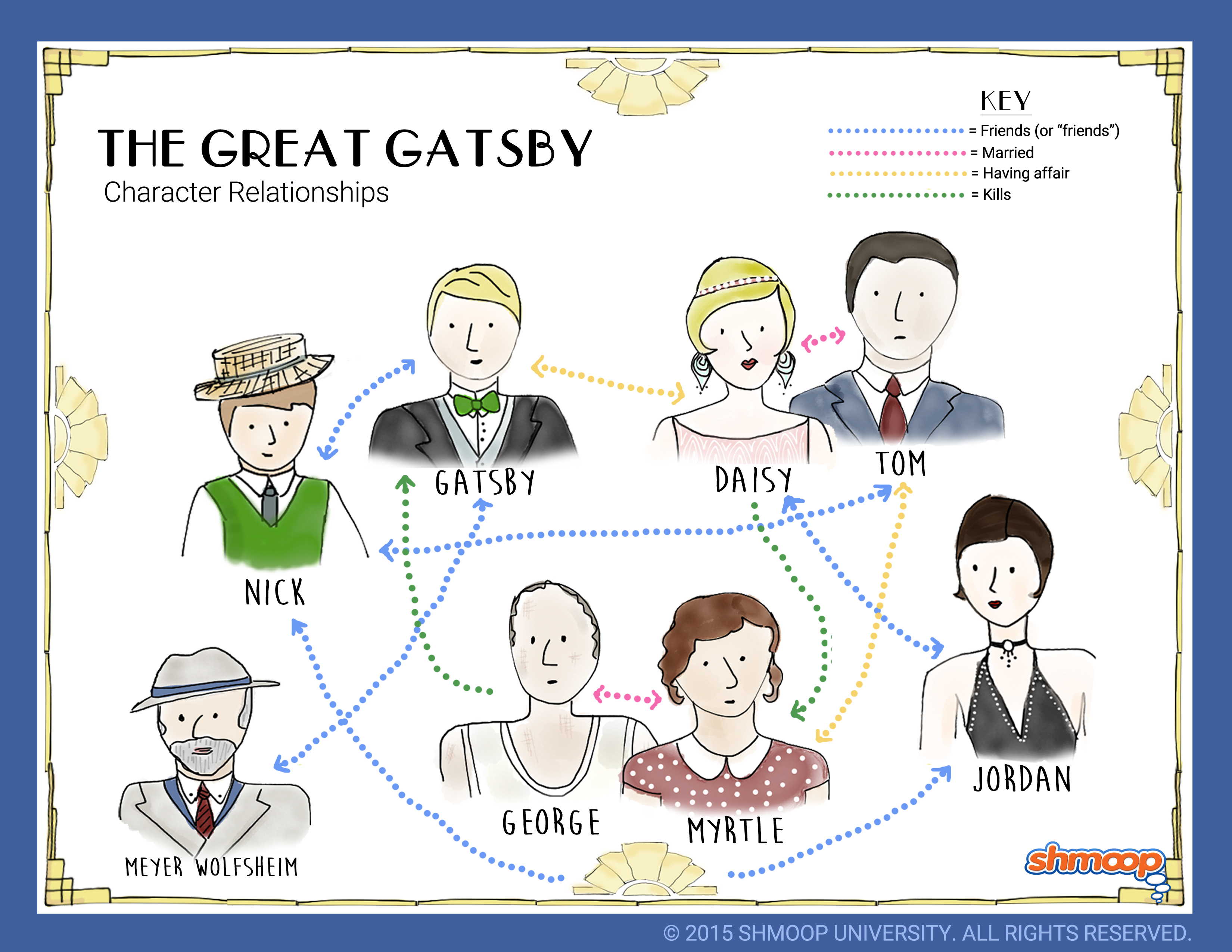Tools of Characterization
Character Analysis

(Click the relationships infographic to download.)
Social Status or Societal Position
We're guessing you saw this one coming.
Because social status is a defining quality in the book, it helps us define the characters. Gatsby may be rich, but he isn't socially in the upper class. And that means he can never have Daisy. Tom, meanwhile, is practically characterized entirely by his money (along with the abusive nature and that whole "The Hulk" thing). And Daisy? Gatsby sums it up: "Her voice is full of money" (7.98).
Location
Gatsby lives in West Egg ("the least fashionable of the two" [1.14]), but Daisy lives in East Egg. Having been told that East Egg is the wealthier of the two, this difference in location highlights the differences between Jay and Daisy's societal rank. It's also worth noting that Jordan, Nick, and Daisy are all in East Egg together, while Nick and Gatsby live together in West Egg. This division makes sense toward the end of the novel, when Nick takes Gatsby's side against the others – the "rotten crowd" (8.44).
Occupation
Gatsby ends up largely defined by his occupation: bootlegging. His illegal job is a constant reminder that Gatsby doesn't really belong in New York's high society. Nick, on the other hand, is "a bond man," a job that, like Nick, is straightforward and clean. (Other jobs? Wilson, the poor auto mechanic, reduced to servicing other men's vehicles while they, uh, look after his wife; and Jordan, the dishonest golf pro.)
Speech and Dialogue
For the most part, characters in The Great Gatsby are well-educated. Their speech and dialogue reflect this education, which in turn reflects their wealth and social status. But not everyone: Nick points out Gatsby's affected speech, speech of "elaborate formalities" that borders on "absurd," like constantly using the phrase "old sport." It's clear to him that Gatsby has practiced to sound educated and wealthy. The problem is that Nick isn't fooled—and neither is anyone else. Gatsby's speech gives him away, ironically because it's too posh.
Mr. Wolfsheim, on the other hand, has the opposite problem: his language indicates his lack of education, lack of class, and general lack of what wealthy, snobby people in the 1920s might have called "good breeding." Oxford becomes "Oggsford;" "Connection" becomes "gonnection." By contrasting Wolfsheim's and Gatsby's diction with that of people like Nick Carraway, Fitzgerald suggests that those involved in organized crime are necessarily working class – no matter how wealthy and powerful they appear to be.